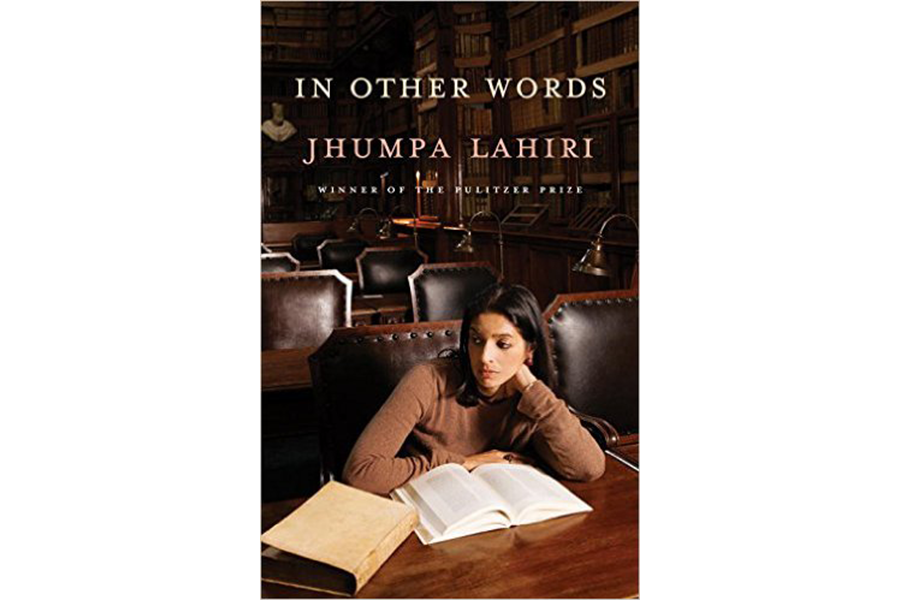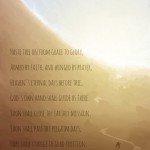One way I’m trying to expand my cross-cultural experience is by reading stories and reflections from authors outside my own background. In Other Words by Jhumpa Lahiri offers a fascinating window into the mind of an English-speaking author who tries to find her voice in Italian.
Writing in a language that “first captivated and capsized her” during a vacation in Florence, the book recounts Lahiri’s journey as she moves to Rome seeking full immersion into Italian language and culture (you can hear her discuss it here). In Other Words is in essence her journal, retracing the process of learning to express herself in another language, finding belonging, and reinventing herself as a linguistic pilgrim in Rome, La Città Eterna (the Eternal City).
Lahiri’s background of growing up in a Bengali-speaking household and climbing to the pinnacle of American literary culture (she’s a Pulitzer Prize winner) gives her a unique voice. Her prose will help you resonate with a wide range of people: immigrants, children of immigrant families, third-culture kids, language students, overseas workers, those in mixed-culture marriages and families, members of faith communities — anyone who’s ever felt the disconnect between the world they grew up in, the place they’re immersed in, and the belonging they’re looking for. While Lahiri writes without a discernible Christian faith, her longings for eternity, her “baptism” into Italian, and many of her word choices betray a worshipper. Like all of us, she has eternity on her heart (Eccl. 3:11).
You’ll need to read the book yourself to fully experience Lahiri’s thought-provoking vignettes about exile, belonging, racism, mastery, immersion and — dare I name it — salvation. But here’s a few snippets to whet your appetite (highlights in bold mine).
On language immersion:
“For twenty years I studied Italian as if I were swimming along the edge of [a] lake. Always next to my dominant language, English. Always hugging that shore. It was good exercise. Beneficial… for the brain, but not very exciting. If you study a foreign language that way, you won’t drown. The other language is always there to support you, to save you. But you can’t float without the possibility of drowning, of sinking. To know a new language, to immerse yourself, you have to leave the shore. Without a life vest. Without depending on solid ground.” (p.5)
On exile:
“I’m used to a kind of linguistic exile. My mother tongue, Bengali, is foreign in America. When you live in a country where your own language is considered foreign, you can feel a continuous sense of estrangement. You speak a secret, unknown language, lacking any correspondence to the environment. An absence that creates a distance within you.” (p.19)
“The language still seems like a locked gate… [but] Marco and Claudia give me the key. When I mention that I’ve studied some Italian, and that I would like to improve it, they stop speaking to me in English… they correct me, they encourage me, they provide the words I lack. They speak clearly, patiently. Just like parents with their children… because in the end to learn a language, to feel connected to it, you have to have a dialogue, however childlike, however imperfect.” (p.25)
On love (worship?) and eternal life:
“When you’re in love, you want to live forever. You want the emotion, the excitement you feel to last. Reading in Italian arouses a similar longing in me. I don’t want to die, because my death would mean the end of my discovery of the language. Because every day there will be a new word to learn. Thus true love can represent eternity.” (p.45)
On sin:
“A week after arriving… I open my diary to describe our misadventures. That Saturday, I do something strange, unexpected. I write my diary in Italian. I do it almost automatically, spontaneously. I do it because when I take the pen in my hand, I no longer hear English in my brain… it’s as if I were writing with my left hand, my weak hand, the one I’m not supposed to write with. It seems a transgression, a rebellion, an act of stupidity… I don’t recognise the person who is writing in this diary, in this new, approximate language. But I know that it’s the most genuine, most vulnerable part of me.” (p.55-57)
On faith:
“In Italian I write without style, in a primitive way. I’m always uncertain. My sole intention, along with a blind but sincere faith, is to be understood, and to understand myself.” (p.59)
On falling short but feeling alive:
“Every day, when I speak, when I write in Italian, I meet with imperfection. That curving line leaves a trail, it accompanies me everywhere. It betrays me; it reveals that I am not rooted in this language. Why, as an adult, as a writer, am I interested in this new relationship with imperfection? What does it offer me? I would say a stunning clarity, a more profound self-awareness. Imperfection inspires invention, imagination, creativity. It stimulates. The more I feel imperfect, the more I feel alive.” (p.113)
On translation:
“I think that translating is the most profound, most intimate way of reading. A translation is a wonderful, dynamic encounter between two languages, two texts, two writers. It entails a doubling, a renewal… [a way]… of feeling connected to writers very distant from me in space and time.” (p.121)
(So don’t give up on those paradigms and vocab lists, friends!)
On exile and yearning for a homeland:
“Those who don’t belong to any specific place can’t, in fact, return anywhere. The concepts of exile and return imply a point of origin, a homeland. Without a homeland and without a true mother tongue, I wander the world, even at my desk. In the end I realize that it wasn’t a true exile: far from it. I am exiled even from the definition of exile.” (p.133)
On being seen as a foreigner:
“Because of my physical appearance, I’m seen as a foreigner. It’s true, I am. But, being a foreigner who speaks Italian well, I have two linguistic experiences, remarkably different, in this country… [w]hen I speak Italian with my Italian friends I feel immersed in the language, welcomed, accepted… [but] People who don’t know me assume, looking at me, that I don’t know Italian. When I speak to them in Italian… they say, puzzled, “I don’t understand”. It’s always the same response, the same scowl…” (p.139)
“Sometimes when I speak Italian in Italy, I feel reprimanded, like a child who touches an object that shouldn’t be touched. “Don’t touch our language,” some Italians seem to say to me. “It doesn’t belong to you.”” (p.139-141)
“I go into the shop. This time I say nothing. I’m silent. But the saleswoman, seeing me, says immediately, in English, “May I help you?” — four polite words that every so often in Italy break my heart.” (p.145)
On leaving, reentry, and lasting change:
“My journey is coming to an end. I have to leave Rome this year and return to America. I have no desire to. I wish there were a way of staying in this country, in this language. I’m already afraid of the separation between me and Italian. At the same time I’m aware of a significant, formal distance between me and English, an idiom in which I haven’t read for three years. The decision to read only in Italian led me to take this new creative path. Writing comes from reading. Now, in spite of my uneasiness, I prefer to write in Italian. Even if I remain half blind, I can see certain things more clearly. I feel more centered even if I’m adrift. I feel more at home, in spite of the discomfort… If I stop writing in Italian, if I go back to working in English, I expect to feel another type of loss.” (p.229)
It’s a great read – one I commend wholeheartedly! Even so, much of Lahiri’s experience also brings to mind another voice, another writer who likewise explores exile, belonging, and salvation in La Città Eterna (the Eternal City):
“So Jesus also suffered outside the gate in order to sanctify the people through his own blood. Therefore let us go to him outside the camp and bear the reproach he endured. For here we have no lasting city, but we seek the city that is to come.”
Hebrews 13:12-14, NIV
In other words, because the Son of God experienced exile, loss, dislocation for us, his death and resurrection opens the way to a new and better home. One without ethnic barriers, where we will be understand and be fully understood, love and be fully loved. That’s worth writing about – non à?




